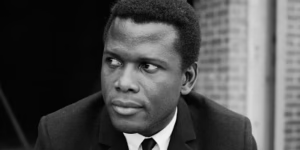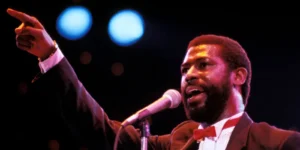The Sampling Revolution: A History of Music’s Most Influential Samples
Introduction
Sampling, the process of using a portion of one song to create another, has been a staple of music production since the 1960s. In the hands of innovative producers and artists, samples have been transformed into entirely new works of art, propelling genres and styles forward. This article will delve into the world of sampling, exploring the stories behind some of the most influential and iconic samples in music history.
4. Curtis Mayfield: “Superfly”
In the 1970s, Curtis Mayfield’s "Superfly" became a legendary soul classic, with its sleek harmonies and soaring guitar riffs. The song has been sampled countless times, with the Beastie Boys’ "Egg Man" being one of its most prominent uses. Released in 1989 on their groundbreaking album "Paul’s Boutique," "Egg Man" is a dizzying, 80s-funk-infused tribute to Curtis Mayfield’s style.
▶ Listen on Spotify, Apple Music, or YouTube
5. Tom Scott featuring the California Dreamers: “Today”
Pete Rock & CL Smooth’s "They Reminisce Over You (T.R.O.Y.)," a 1992 ode to their late friend Troy Dixon, features a haunting saxophone riff sampled from Tom Scott and the California Dreamers’ 1967 cover of the Jefferson Airplane’s "Today." The song’s string sounds were created on a Yamaha GX-1, one of the earliest electronic instruments capable of mimicking orchestral timbres. Pete Rock revealed in a 2007 interview that the sample’s wistful quality inspired the track’s memorable sax solo.
▶ Listen on Spotify, Apple Music, or YouTube
6. Stevie Wonder: “Pastime Paradise”
Stevie Wonder’s 1976 classic "Pastime Paradise" boasts lush, synth-heavy orchestration and a distinctive "ah-ah-ah" hook. The song was famously interpolated in Coolio’s 1995 smash hit "Gangsta’s Paradise," featuring a clean version of the track with a memorable hook. Labi Siffre’s "I Got the…" was also interpolated in Eminem’s debut hit "My Name Is." Coolio initially wanted to sample Stevie Wonder’s full song, but Stevie refused, deeming the song "too dirty."
▶ Listen on Spotify, Apple Music, or YouTube
7. Labi Siffre: “I Got the…”
Labi Siffre’s 1975 single "I Got the…" features a soaring, electro-funk chorus. Eminem sampled the song for "My Name Is," one of the most successful rap debuts in history. Despite initially objecting to the song’s content, Labi Siffre signed off on a clean version, only to later realize that the dirty version had also been cleared for use. His lawyer intervened, and a compromise was reached: Labi Siffre received a dollar for each single sold, while Eminem donated 50 cents of every royalty payment to the United Negro College Fund.
▶ Listen on Spotify, Apple Music, or YouTube
8. Kraftwerk: “Trans-Europe Express”
Afrika Bambaataa & Soulsonic Force’s "Planet Rock," released in 1982, is an influential hip-hop track built upon Kraftwerk’s "Numbers" and "Trans-Europe Express" choruses. Afrika Bambaataa didn’t initially receive permission from Kraftwerk, but they eventually granted him permission in exchange for a small royalty. As the track gained popularity, Kraftwerk’s label owner raised the price of the "Planet Rock" 12-inch single to $5.98, essentially doubling his profit.
▶ Listen on Spotify, Apple Music, or YouTube
9. Enya: “Boadicea”
Enya’s eerie, atmospheric Celtic instrumental "Boadicea," released in 1987, became the basis for the Fugees’ "Ready or Not" in 1996. Although the Fugees didn’t initially credit Enya, they later granted her permission for use in the track. In a 2016 interview, Enya revealed she was initially unaware of the sampling, but after hearing the final product, she decided to settle out of court and grant her approval.
Conclusion
The history of sampling is marked by a mix of innovation, copyright disputes, and cross-cultural collaborations. From the groundbreaking samples of the 1980s to the eclectic interpolations of the 1990s, the art of sampling has continuously shaped the trajectory of popular music. These stories not only highlight the influence of legendary artists like Curtis Mayfield and Kraftwerk but also the entrepreneurial spirit of producers like Pete Rock and the Fugees.
FAQs
Q: Who is responsible for creating the sample?
A: In many cases, the original artist or songwriter creates the sample. However, some samples are created by producers or remixers.
Q: How do producers typically clear samples?
A: Typically, producers must obtain permission from the original artist, label, or copyright holders before clearing a sample.
Q: What is interpolation?
A: Interpolation is a term used when a new song borrows specific melodies, chord progressions, or other musical elements from another song.
Q: What is the current state of sampling in music production?
A: Sampling continues to evolve, with artists and producers incorporating modern technologies like AI and audio editing software into their workflow.
Q: Can anyone clear samples for use in their own music?
A: Yes, provided you obtain permission from the original copyright holders or owners, and ensure you follow all applicable laws and regulations regarding sample clearance.






